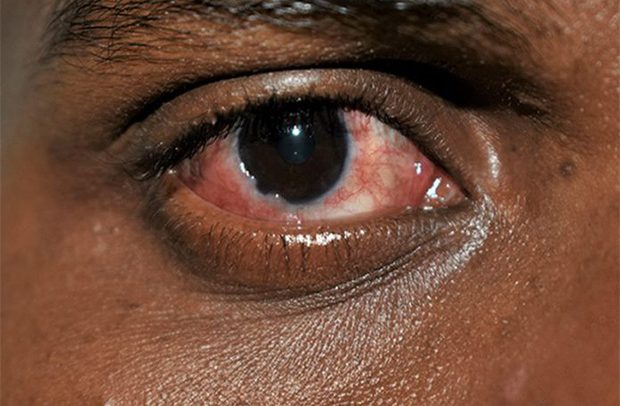The Ghana Health Service (GHS) has sounded an alarm bell to the general public about the rapid spread of Acute haemorrhagic conjunctivitis, popularly known as Apollo, across all the 16 regions of the country.
Health officials have urged the public to practice frequent hand washing and avoid touching their eyes.
Speaking in an interview with Citi News, Dr. Franklin Asiedu-Bekoe, the Director of Public Health at GHS, said that more than 50% of eye cases reported at the Police Hospital’s eye clinic are linked to Apollo, and the virus is spreading fast across the country.
Acute hemorrhagic conjunctivitis or Apollo is a severe form of viral pink eye that could cause eyelid swelling, eye discharge, and bleeding. Although there is no cure, treatments can help manage the symptoms until the virus clears. Conjunctivitis (“pink eye”) is inflammation of the thin membrane that covers the eyeball and inner eyelid, and certain viruses can cause a specific type of conjunctivitis, including acute hemorrhagic conjunctivitis (AHC).
AHC is usually much more severe than other types of conjunctivitis, with symptoms such as painful swelling and noticeable bleeding in and around the eye. In some parts of West Africa, AHC is commonly known as “Apollo 11 disease,” as it was first discovered in Ghana in 1969, the year of the moon landing.
The GHS is urging the public to take precautionary measures to prevent the spread of Apollo by washing their hands frequently to avoid infection.
It is also important to avoid touching the eyes and seeking medical attention immediately if experiencing any symptoms. The government has assured that measures are being put in place to prevent the outbreak from escalating.
By Vincent Kubi

